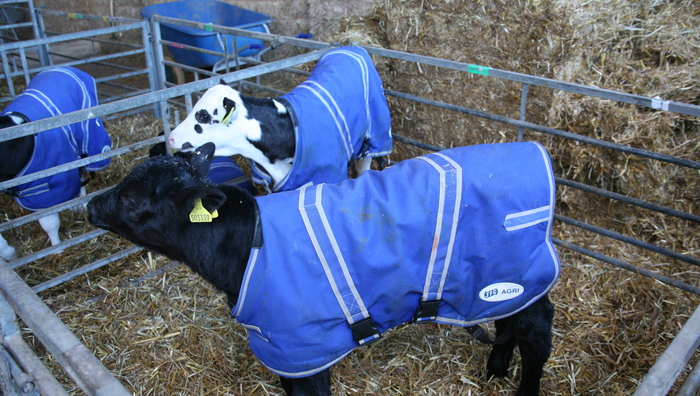A new precisely balanced oral rehydration supplement can help calves more effectively recover from the implications of the dehydration suffered due to diarrhoea.
Digestive disorders are the main cause of morbidity and mortality in calves and the implications on future performance can result in significant financial losses, according to Georgina Thomas, Young Animal Feed Manager with Trouw Nutrition GB.
She stresses that it is not necessarily the diarrhoea itself that causes the high levels of mortality, but the associated dehydration. Rehydration strategies based on oral rehydration solutions remain an essential weapon in the battle against diarrhoea, but new research suggests their effectiveness can be improved.
“Many rehydration solutions on the market include high amounts of glucose. At the same time, they commonly have a high sodium concentration. This combination can reduce the effectiveness of the product due to relative concentration compared to the blood, which is measured as osmolality.”
Blood and bodily fluids have an osmolality of around 300mOsm/kg. Anything higher is termed hypertonic and has the effect of pulling more water from the body, increasing the impact of dehydration. A liquid lower than 300mOsm/kg is called hypotonic and has the reverse effect, supporting absorption from the gut into the body.
Effective oral supplements will be hypotonic, yet many oral rehydration solutions are hypertonic which can reduce absorption and can therefore be less effective in controlling dehydration.
Ms Thomas also says it is important to continue feeding milk or milk replacer to ensure the calf is being supplied with energy. The oral supplement should be offered between milk feeds but should never be mixed with the milk, as this will make the pH too high in the abomasum and therefore interfere with curd formation.
OsmoFit is a new dietetic water-soluble oral rehydration solution for calves designed for use alongside continued feeding of milk or milk replacer. A hypotonic solution containing lower levels of sodium and glucose than other rehydration solutions, it helps stabilise the water and electrolyte balance by providing the required salts and sugars in the optimum amounts and at the correct ratio. It can be used during periods of, and recovery from diarrhoea.
OsmoFit should be provided as soon as calves show signs of dehydration and have a depressed appetite. It does not prevent diarrhoea from occurring, but supports the calf’s recovery by helping treat the consequences of dehydration.
“The sooner you start treating the consequences of diarrhoea effectively, the sooner the calf will recover and the more manageable the consequences will be. Strategies based on maintaining milk feeding and the use of correctly balanced hypotonic supplements will be more effective in reduce the drain on profitability resulting from diarrhoea in calves.” Ms Thomas explains.


